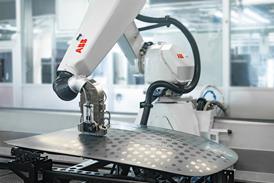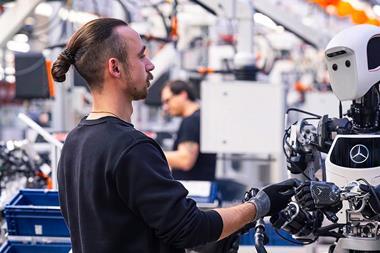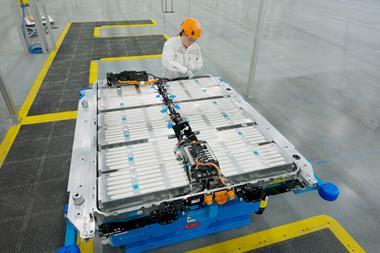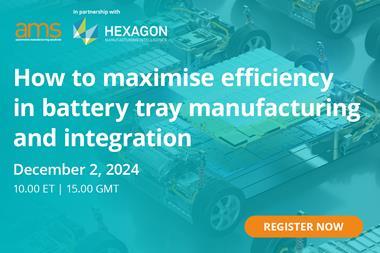This year, for the first time, Euromold went to Düsseldorf, where the event showed signs of being revitalised
Euromold departed Frankfurt in Germany after 21 years, with legal wrangles in the background, and now other shows targeting similar market segments have emerged in the shape of Frankfurt’s FormNext and the Moulding Expo in Stuttgart. This year, the efforts of Euromold organiser Demat to revitalise its event with a new venue (Düsseldorf), a fresh strategy and increased investment were clear, though it is unlikely that the industry really needs, or can sustain, three or more trade shows devoted to the tool and mould sector. Nonetheless, on the basis of the 2015 show, it seems that the long-established Euromold will not be easy to dislodge from the top spot.
Based on the process chain ‘from design prototype to series production’, Euromold features mould-making, tooling, design, additive manufacturing and product development. Part of the new Demat strategy has been to call upon its strong international links and position the show towards strengthening the additive manufacturing industry. Key to this has been an alliance with US-based SME – a non-profit organisation and one of the world’s leading authorities on additive manufacturing and 3D-printing processes – to facilitate collaboration between US and European concerns. An expanded conference programme and an increased awareness of the event among US-based leaders in additive manufacturing technologies began what is intended to be a long-term partnership.
Enhancing international appeal
At the Düsseldorf event, Wohlers Associates’ 17th annual conference featured AutoDesk CEO Jeff Kowalski as keynote speaker, along with a specialist panel of industry experts. These meetings raised the issue that the potential of additive manufacturing is now being hindered by limitations in CAD software. This theme was taken up by other speakers and certainly generated discussion among experts at the individual company displays.

MF Software and The Plastics Engineering Group offered sophisticated software capable of providing CFD calculations for toolmaking and mouldflow analysis, linking process simulation to structural mechanics. Their AutoDesk simulation software products cover a wide range of moulding situations and provide the tools necessary to analyse complex flow and thermal patterns such as conduction and convection.
Highlighting tools for 3D printing
Formlabs was one of the many high-tech companies making product launches at the event: its 3D printer, Form 2, features an automated resin system and enhanced capacity. Formlabs was keen to show off a new process for the printing of large, solid parts with intricate detail.
3D Systems came to Düsseldorf to emphasise and develop its services to industry and commerce rather than to compete in the mercurial 3D-printer market. With an emphasis on manufacturing capabilities, the company also featured design software products that it claims are unique in their ability to offer integrated engineering solutions that encompass the entire spectrum of the digital thread for manufacturing, including scanning, design, production and inspection. At Euromold, the company featured several new products, including the newest version of its popular CNC-machining software, plus the mould-making optimisation software, ClimatronE.
Delcam presented its own range of software products, including PowerMill, PowerInspect & PowerShape.
Sciaky is a US company that made an appearance at Düsseldorf with new electron beam manufacturing (EBAM) systems. It claims EBAM to be the fastest deposition technology available, readily scalable for parts of all sizes.
Keeping a place for older methods
More traditional engineering products were also on show. Belotti has been manufacturing three- and five-axis water-jet and CNC machining centres for more than 30 years. With a research-driven approach into the development of new technologies and advanced solutions, it claims to offer machining centres that conform to the highest standards of quality, innovation and cost-competitiveness.
Elsewhere in the tooling and mould-making sector, numerous Chinese companies were well represented. Many have ties to the automotive sector and were anxious to make their capabilities known to visitors.
The Roemheld Group, with its Hilma and Roemheld brands, offered visitors the opportunity to hear about its manufacturing, assembly, clamping and drive solutions. Its products, from simple mechanical machine vices to complex hydraulic or electrically actuated networks of clamping solutions, are widely used in automotive manufacturing.
Another company presenting more traditional engineering equipment was Cut Solutions, which has special competency in EDM machinery and cutting and erosion technologies.
Foundry equipment specialist Proficast was keen to make visitors aware of its range of products and ability to respond to the needs of the automotive industry.
More conventional toolmaking supplies and technologies were also represented by a range of major players. MetalRavne was on hand to display its complete steel-grade programme, with technical and commercial staff offering support and advice on material selection, utilisation and application.
Plastics processing and technologies were prominent at the Düsseldorf event. Greijn Form Technics was one of a number of companies demonstrating their abilities in thermal and mechanical plastics processing. Vacuum-forming techniques can be used with a wide range of materials and Grejin Form Techniques has the capability to assist with anything from small prototype runs to full series production at competitive cost. The company’s engineering and CAD/CAM departments support all of its products.
 GOM exhibited its optical measurement solutions and technologies for 3D coordinate measurement and deformation analysis
GOM exhibited its optical measurement solutions and technologies for 3D coordinate measurement and deformation analysisAs would be expected, precision measurement and optical tools had a place at Euromold too. GOM, for example, develops and produces optical measurement solutions and technologies for 3D coordinate measurement and deformation analysis.
Optical measuring technology and full-field surface measurement systems have become widely used within automotive manufacturing, and GOM claims its measurement systems provide invaluable data and results for quality control in modern product development and production process chains.
Championing additive manufacturing
Over 450 companies from 30 countries exhibited at Euromold 2015, giving visitors a lot to see and learn. With over a third representing the additive-manufacturing and 3D-printing sector, the organisers' new strategy showed signs of working. However, the change in focus and the absence of some familiar exhibitors from previous years means that colleagues in the automotive sector will keep a careful eye on how the evolving trade-show landscape develops before committing time and resources to any particular event.
But by focusing on the development and promotion of additive-manufacturing technologies, it may be that Euromold’s organisers have taken their event in a distinctive direction and stolen a march on their competitors. The next few years will prove whether shows like these can move away from mere procurement platforms towards a role as key leadership institutions facilitating the development and transfer of technology across sectors.









































